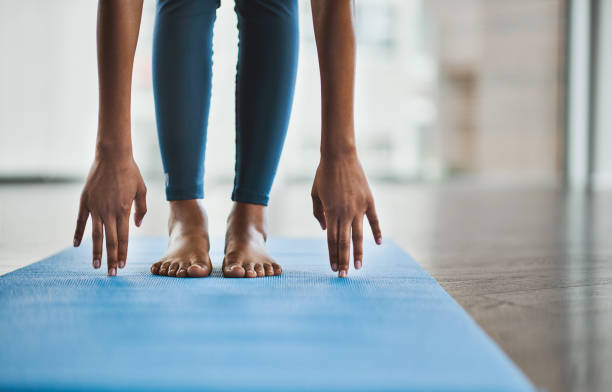Stress is a common experience in our daily lives and can have negative effects on our physical and mental well-being. Fortunately, there are many stress management techniques that can help us cope with stress and promote relaxation. In this article, we will explore different stress management techniques such as meditation, deep breathing, progressive muscle relaxation, yoga, mindfulness practices, guided imagery, Tai chi and qigong, aromatherapy, journaling, and seeking support from friends, family, or professionals.
Also Read: Rafael Nadal Wiki | Net Worth, Wife, Age, Height, Retirement
Understanding the effects of stress on the body and mind:
Stress can affect both our physical and mental health. It can lead to muscle tension, headaches, fatigue, and digestive problems. Long-term stress can increase the risk of chronic health conditions such as high blood pressure, heart disease, and depression. Stress can also affect our cognitive abilities, such as memory and concentration, and can impact our mood and emotional well-being.
Benefits of meditation for stress reduction:
Meditation is a relaxation technique that involves focusing the mind on a specific object, thought, or activity to promote mental calmness and relaxation. Meditation has been shown to reduce stress, anxiety, and depression, and improve overall well-being. It can also improve sleep quality, lower blood pressure, and strengthen the immune system.
Different types of meditation and how to get started:
There are different types of meditation, including mindfulness meditation, transcendental meditation, and loving-kindness meditation. To get started with meditation, find a quiet and comfortable place to sit or lie down. You can start with a few minutes of meditation and gradually increase the duration over time. There are also many guided meditation apps and videos available online that can help you get started.
How deep breathing can calm the nervous system:
Deep breathing is a relaxation technique that involves taking slow, deep breaths to promote relaxation and calmness. Deep breathing can activate the parasympathetic nervous system, which can reduce stress and promote relaxation. It can also help regulate blood pressure and improve oxygenation of the body.
Techniques for deep breathing and relaxation:
To practice deep breathing, sit or lie down in a comfortable position and breathe in deeply through your nose, counting to four. Hold your breath for a few seconds, and then exhale slowly through your mouth, counting to six. You can repeat this technique for a few minutes to promote relaxation.
Progressive muscle relaxation for stress relief:
Progressive muscle relaxation is a technique that involves tensing and relaxing different muscle groups in the body to promote relaxation and reduce stress. To practice progressive muscle relaxation, tense each muscle group for a few seconds, and then release the tension. You can start with your feet and work your way up to your head.
Yoga as a stress management tool:
Yoga is a mind-body practice that involves physical postures, breathing exercises, and meditation to promote relaxation and improve overall well-being. Yoga has been shown to reduce stress, anxiety, and depression, and improve sleep quality and flexibility.
Mindfulness practices for stress reduction:
Mindfulness is a practice that involves paying attention to the present moment without judgment. Mindfulness practices such as meditation, yoga, and breathing exercises can promote relaxation, reduce stress, and improve overall well-being.
Guided imagery and visualization for relaxation:
Guided imagery and visualization is a technique that involves imagining peaceful and relaxing scenes or experiences to promote relaxation and reduce stress. You can practice guided imagery by listening to audio recordings or visualizing peaceful scenes in your mind.
Tai chi and qigong for stress reduction:
Tai chi and qigong are mind-body practices that involve gentle movements, breathing exercises, and meditation to promote relaxation and improve overall well-being. Tai chi and qigong have been shown to reduce stress, anxiety, and depression, and improve flexibility and balance.
Using aromatherapy for stress relief:
Aromatherapy is a practice that uses essential oils to promote relaxation and reduce stress. Essential oils can be used in a diffuser, added to a bath, or applied topically. Some common essential oils for stress relief include lavender, bergamot, and chamomile.
Journaling and self-reflection for stress management:
Journaling and self-reflection can be effective ways to manage stress and promote relaxation. Writing down your thoughts and feelings can help you process emotions and gain clarity. You can also use journaling prompts or guided reflection exercises to explore your thoughts and feelings.
Getting support from friends, family, or professionals:
Seeking support from others can be an important part of managing stress. Talking to a friend or family member can provide a sense of connection and validation. You can also seek support from a mental health professional, such as a therapist or counselor, who can provide tools and strategies for managing stress.
Also Read: BCAA Supplements
Tips for integrating stress management techniques into your daily routine:
Incorporating stress management techniques into your daily routine can help promote relaxation and reduce stress. Some tips for integrating stress management techniques include setting aside time each day for relaxation, incorporating mindfulness practices into your daily routine, and creating a calming environment in your home or workspace.
Conclusion:
Managing stress is an important part of maintaining overall health and well-being. By incorporating stress management techniques such as meditation, deep breathing, yoga, and aromatherapy into your daily routine, you can promote relaxation, reduce stress, and improve your physical and mental health. Remember that finding the right combination of techniques may take some trial and error, so be patient and persistent in your efforts to manage stress.










